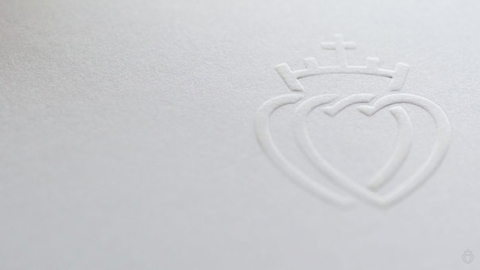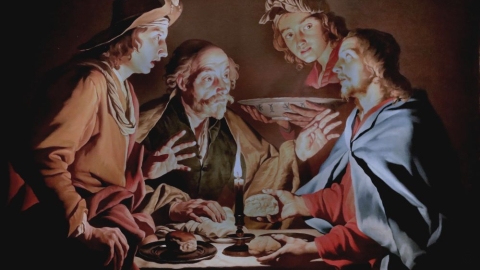Euthanasia: Cardinal Eijk’s Salutary Reminder

Le cardinal Willem Eijk, au centre
The situation in the Netherlands with regard to the end of life is becoming increasingly worrying, raising fears, by 2022, that the conditions for access to euthanasia will be widened. This is the worrying statement made by Cardinal Willem Eijk, Archbishop of Utrecht.
It was with a grave expression that the titular cardinal of the Roman basilica of St. Callixte gives an interview to Catholic News Agency on September 24, 2020.
The prelate seeks to sensitize the opinion on the euthanasia drift at work in his country: all the indicators tend to show that the next government resulting from the legislative elections of March 2021, “might take up a bill permitting assisted suicide for people who simply believed that their lives were ‘completed.’”
This warning from the high Dutch prelate coincides with the publication of a document by the Holy See - Samaritanus Bonus, on September 22 - which reaffirms that euthanasia remains “an intrinsically evil act, in every situation or circumstance.”
For the Archbishop of Utrecht, the finding is tragic: “This implies that the respect for the essential value of the life of a human being is eroded ever more in the last half a century, which was inescapable,” he said. “For, once accepting the termination of life for a certain measure of suffering, one will always be confronted with the question of whether it should not also be allowed in suffering that is only a little bit less.”
Appalling Drift
Cardinal Eijk relates an emblematic case to illustrate his point. This year, the Supreme Court of the Netherlands examined the case of a doctor prosecuted for abusive euthanasia and acquitted in 2019. It was a resident of a nursing home who had formulated in writing - at the invitation of the establishment - a rather vague request for euthanasia, “at the moment that she would think to be ready for it.”
Four years later, suffering from dementia, the patient was no longer able to express her will. Despite this, the doctor decided to euthanize her, with the family’s consent. Mgr. Eijk specifies that the patient withdrew her arm when the physician attempted to make the injection: “the physician administered a sedative in the woman’s coffee. She fell asleep, by which an infusion could be introduced in her arm. When the physician administered the means for euthanasia, she however awoke, but family members held her tight, such that it was possible to administer them and to complete the euthanasia.” Until death…
The Supreme Court ruled on April 22, 2020, that the first instance acquittal was valid, on the grounds that withdrawing her arm would be more of a reflex action, than a positive act of voluntary refusal. Which comes down to judging the patient’s condition and the degree of her dementia.
The Archbishop of Utrecht further refers to a prediction from a Dutch euthanasia expert that assisted suicide cases could double in the next eight years. “If his prediction proves correct, the annual number of euthanasia cases will exceed 12,500, more than 8% of the yearly number of all deaths, by 2028,” the cardinal explains.
Mgs. Eijk finally recalls that a priest cannot stay with a patient undergoing euthanasia. Such a patient should be refused a public funeral, because “the person involved would therefore be responsible for the violation of this essential value of his life by making himself euthanized, which is a grave and irreversible sin, committed just before his eternal meeting with his Creator.”
“Good pastoral care for a person who wants to be euthanized requires that the priest, accompanying him, clearly say to him that the intrinsic value of human life is violated by euthanasia,” sums up the cardinal.
Finally, “the euthanasia debate presents Catholics with another daunting challenge: convincing secular society that suffering can be meaningful when seen in the light of Christ: “Jesus will in the end carry the cross of him who decides to participate in Christ’s suffering.”
The sick person “can then dedicate his suffering to relatives, friends, others or all people in order that God give them the grace they need in order to carry their crosses or for their conversion to Christ and their eternal life,” concludes the cardinal.
Related links
(Source : Catholic News Agency - FSSPX.Actualités)
Illustration : Pepijntje / Public domain



